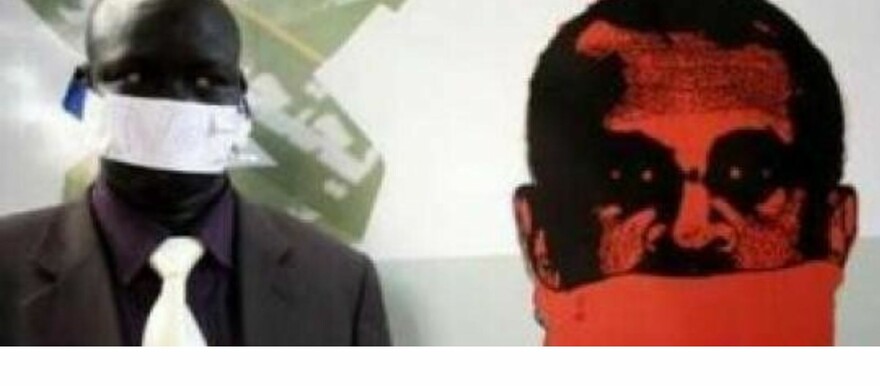As South Sudan marks World Press Freedom Day today, May 3, most people say there is no freedom for media when it comes to advocating for the basic rights of citizens.
World Press Freedom Day is celebrated on 3 May annually, to evaluate press freedom indexes around the world, to defend the media from attacks on their independence and to pay tribute to journalists who have lost their lives in exercise of their profession.
This year’s theme as defined by UNESCO is “Shaping a Future of Rights: Freedom of expression as a driver for all other human rights”.
South Sudan ranked 128th out of 180 countries in Reporters Without Borders’ annual World Press Freedom Index in 2022.
Speaking to Radio Tamazuj on Tuesday, most people have said the media fraternity in South Sudan is still in bondage of some key government institutions, with members of the media unable to express and present issues facing society.
Emmalex Brown, a resident of Juba, believes that the media has no freedom because, most times, journalists are intimidated and detained, and sometimes, journalists have had to flee from South Sudan.
“In the country, most people are not aware that media is a medium for advocating for the rights of the citizens,” he said.
“Our country has not always been easy for journalists because when journalists normally go to the field, they face many challenges, especially from the security,” he added. “We have not yet seen the same level of media freedoms that other citizens enjoy in other countries. If the media present the voices of the people, the government must give journalists the freedom that they want so they can do their jobs. With media freedoms, citizens can have a voice to express their rights,” Emmalex explained.
Emmalex pointed out that ordinary citizens are afraid to speak freely to journalists because of fear of threats, intimidation, arrests and detention by the security services.
Papa Gonjier Goc, another resident, said there is freedom for media but that “it is not 100 per cent”. “Sometimes, while reporting our stories, some security personnel do not allow journalists to access information,” Goc said.
Goc has called on government institutions, especially national security, to give space to the media to allow it to execute its duty. “I wish the government and especially the national security in the country to give the media freedom to do its job without detention.”
Another citizen who spoke on condition of anonymity believes there is no freedom of the media in South Sudan because most media houses, especially the print media, have witnessed what he called the removal of news articles which is believed to be done by national security agents on the pretext of classified information.
“Regarding your question, I believe there is no freedom. For example, there are some stories that they believe are classified information. Those stories that they believe cannot be disseminated to the public; when those stories reach the printing press, they are removed,” he said.
He maintains the view that there is extensive censorship of media in the country with the sole purpose of reducing media rights and freedoms.




